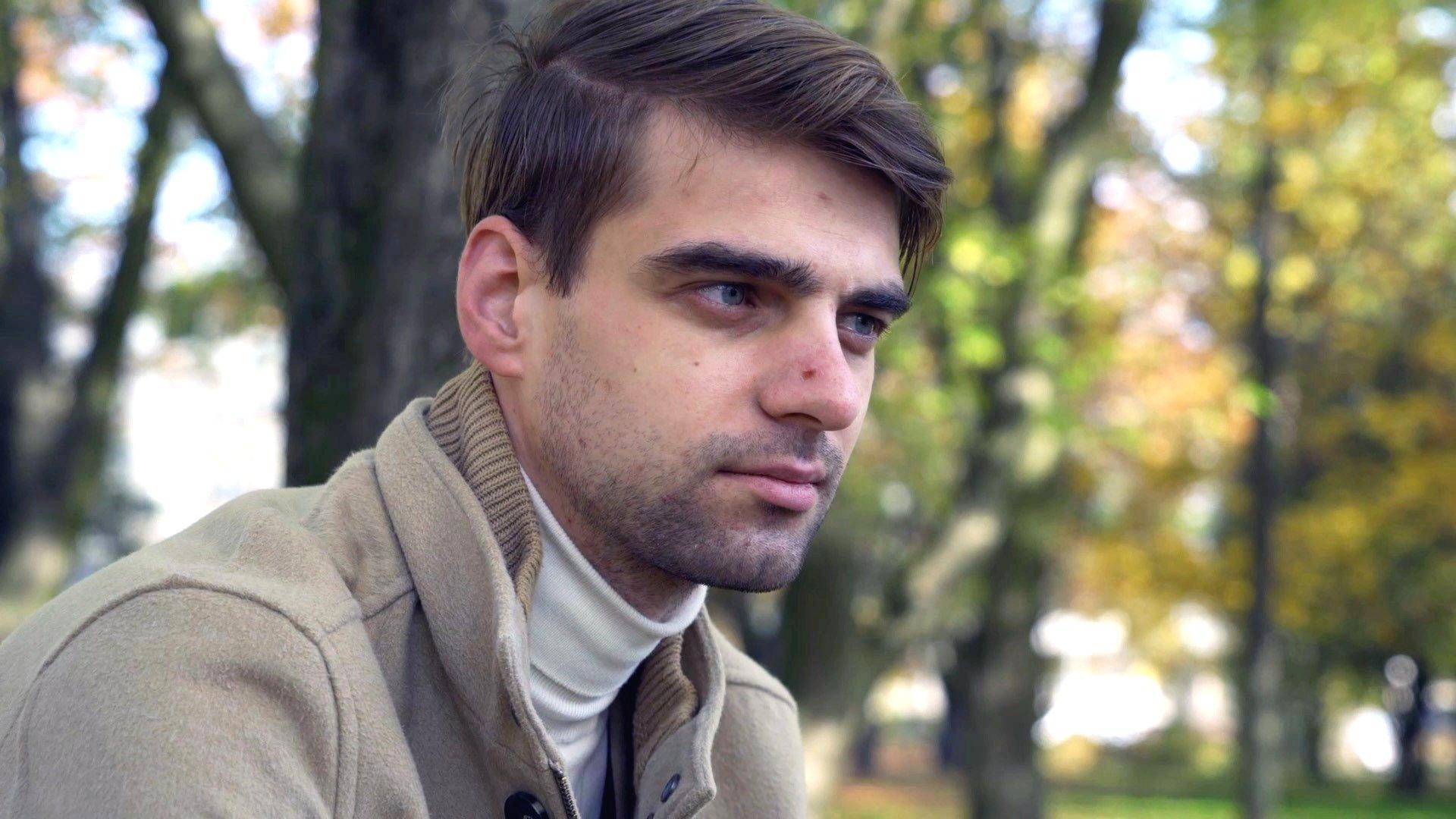Why wearing the wrong socks is risky in Belarus
- Published
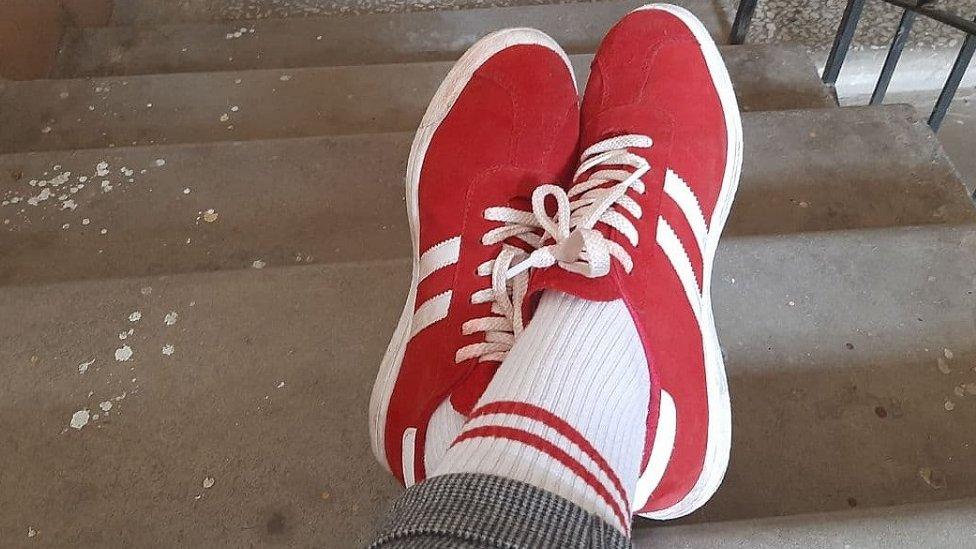
What looks like normal sports kit is treated as a political statement in Belarus
The Belarus authorities are now punishing not only those who fly the opposition red-and-white flag but even people sporting socks in those colours.
A woman on her way to a driving lesson was grabbed by four men in black balaclavas in the capital Minsk. They told her she was dressed improperly.
The reason? She was wearing white socks with red stripes, like the banned flag.
She was also accused of flashing V for Victory signs to passing drivers - who saluted back - and was heavily fined.
The white flag with a red stripe across it was the flag of Belarusian nationalists for brief periods in the 20th Century.
The Soviet Communists replaced it with a red-and-green flag, including the hammer and sickle symbol and a traditional folk motif. That flag was reintroduced by President Alexander Lukashenko in 1995 - after the fall of communism - but minus the hammer and sickle.
A judge ordered Natalia Sivtsova-Sedushkina to pay 2,320 Belarus roubles - about £650 ($906).
She was prosecuted under laws banning unauthorised protests. Her offending socks and red trainers were easy to see as she was wearing short jeans at the time.
The internet shop where she bought the socks has now stopped selling them - it does however sell similar white socks with black stripes.
Ms Sivtsova-Sedushkina was fined a similar amount previously for adorning her balcony with red and white ribbons.
Tens of thousands of protesters thronged Minsk for months last year, furious at President Lukashenko for claiming re-election in an August vote widely condemned as rigged.
Belarus protests: Flash mobs and courtyard singing
Police used tear gas and baton charges to break up the demonstrations and arrested thousands. Many cases of police brutality were documented, and Mr Lukashenko remains internationally isolated except for Russian support.
The anti-government protests have largely died down, with the main opposition leaders either in exile or in prison.
More than 2,700 people have been prosecuted this year for anti-Lukashenko activities, as the crackdown continues.
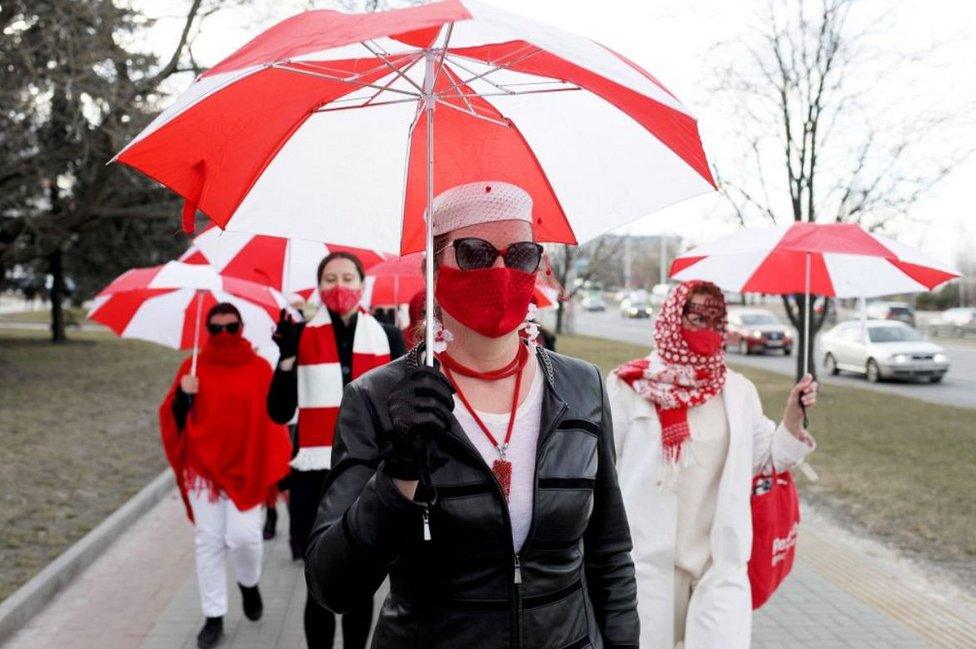
Last month some women in Minsk still defiantly paraded the opposition colours
In other anti-opposition cases:
A woman in Mogilev, Maria Voynova, was fined the equivalent of $115 (£82) for making her signature look like an "extremist" slogan. Without spelling it out, Belarusian media hinted that it was the ACAB slogan, a globally recognised anti-police meme
Also in Mogilev, a man and a woman got three years in jail for hanging straw effigies along a country road. Olga Klimkova and Sergei Skok were found guilty of "hooliganism" and insulting Alexander Lukashenko
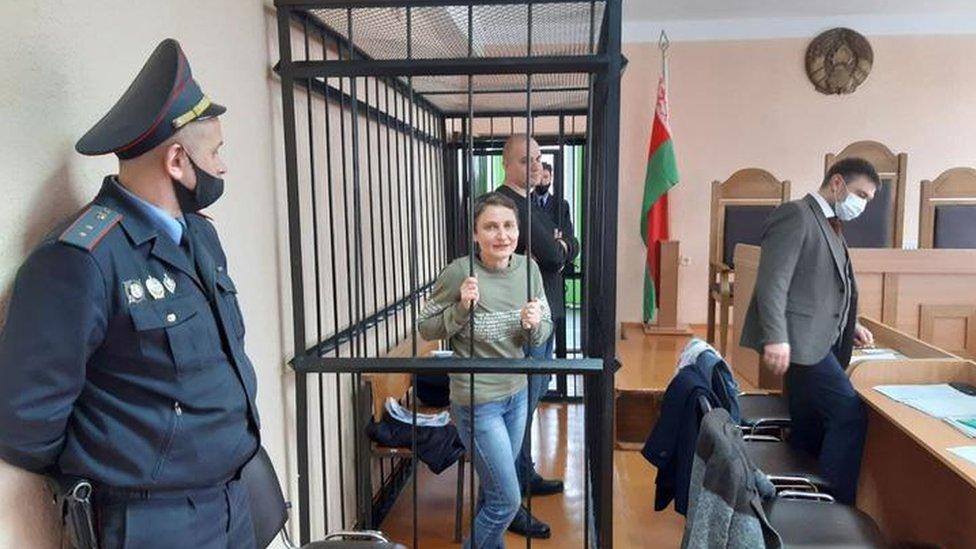
Olga Klimkova and Sergei Skok were found guilty of mocking the president
A man was arrested in Minsk for allegedly supporting protesters with a red-and-white "paper banner" on his balcony. Andrei Parkhomenko denied that, saying it was the box for an LG TV set, in those colours, which he had not removed as he had only just moved into his new flat
Yulia Yakubovich got a two-year suspended sentence in Minsk for blocking traffic to make a political point. She denied that, saying the traffic had stopped at a red light.
Related topics
- Published30 December 2020

- Published17 November 2020
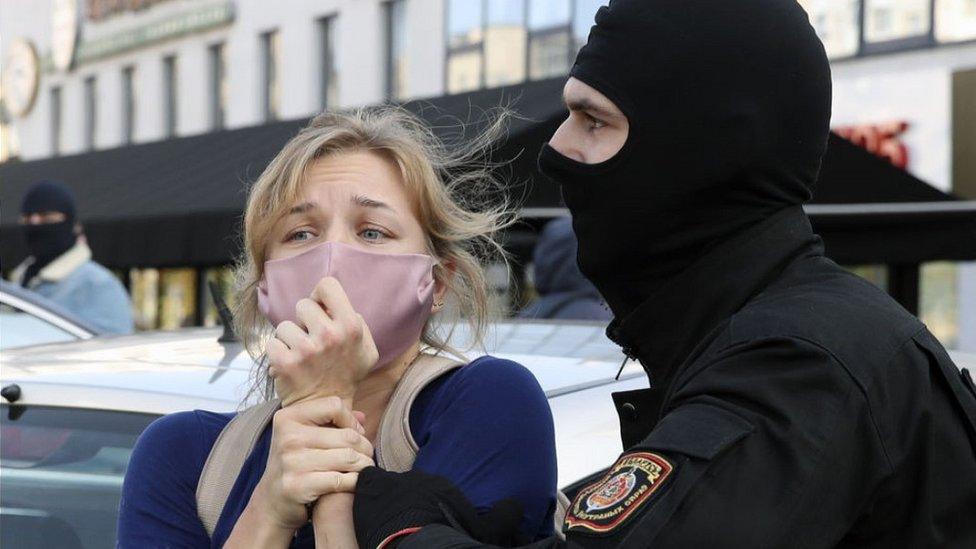
- Published16 December 2020
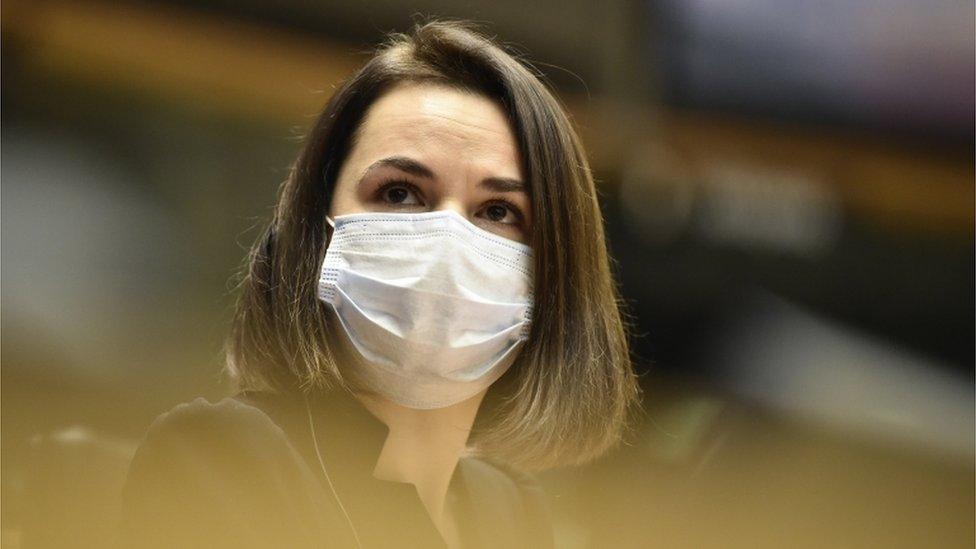
- Published1 December 2020
